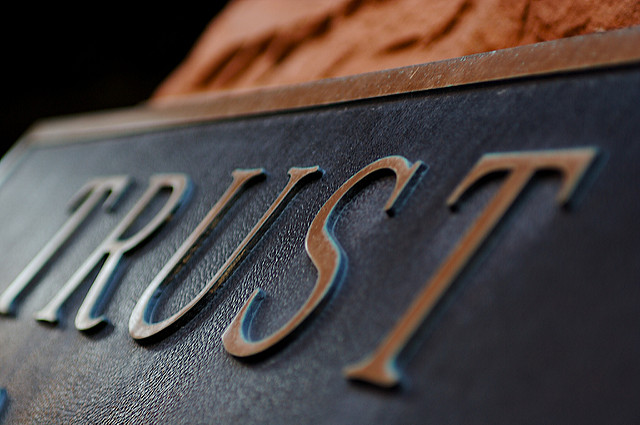We’re now mid-way through the first year of the AAAS Community Engagement Fellows Program (CEFP), funded by the Alfred P. Sloan Foundation. The first cohort of Fellows is made up of 17 scientific community managers working with a diverse range of scientific communities. As they continue to develop their community engagement skills and apply some of the ideas and strategies from their training, the Fellows will report back on the Trellis blog, sharing their challenges, discoveries, and insights. Today, in part one of a two part series, Fellow Elisha Wood-Charlson introduces the role of knowledge brokering.
Posted by Elisha Wood-Charlson, Data/Research Communications Program Manager for the Simons Collaboration on Ocean Processes and Ecology

During Moment #1 of realizing I was becoming a “Community Engagement Manager”, I was introduced to the concept of a knowledge broker. At the time, I was a postdoc in Australia and “climate change” was not an acceptable phrase (sound familiar?). Knowledge brokering was about how scientists were involved in policy decisions. As Roger A Pielke, Jr. author of the book The Honest Broker: Making sense of science in policy and politics, explains on his blog,
“The defining characteristic of the honest broker is a desire to clarify, or sometimes to expand, the scope of options available for action.”
As part of the inaugural Community Engagement Fellow Program (CEFP) cohort, I have come to realize that these characteristics run deep in the small (but mighty) realm of scientific community managers (SCM).
Knowledge brokering best practices
Knowledge brokering is just one of six knowledge (K*) terms, including knowledge brokering, management, transfer, translation, exchange, and mobilization, outlined in a United Nations University-Institute for Water, Environment, and Health (UNU-INWEH) 2012 executive summary report called “Expanding our understanding of K*”.
These terms are processes that are critical for successful collaborations, both within science and across science and policy. But these K* processes don’t happen spontaneously. Like all things, they require time and effort – a.k.a. people power. So, how do knowledge brokers and other key players make all this possible?
David Phipps and colleagues identified several Knowledge brokering best practices in a recent paper. For each best practice, I have recommended one or more posts from the Trellis blog that show how these activities can be applied to scientific community management:
– Build trust (26 Aug 2016)
– Develop capacity (27 Apr 2017)
– Co-constructing knowledge (27 Jun 2017)
– Understand the political, social, and economic context (6 July 2017)
– Build culture (23 Sep 2016, 20 Jun 2017)
In the second post in this series I’ll dive deeper into the skills required for knowledge brokering and community management to explore the similarities and differences between the two roles.
You can find all of the CEFP Fellows’ posts here.
Thanks Elisha! Very interesting. Yes, the role of trust is central and essential. And it is here that the current administration is doing tremendous harm in gutting governmental agencies, transferring key staff who dare to speak out to less visible positions, not filling key positions, etc.; w/o trusted scientists in the game, how can a meaningful dialog be held?
Aloha Ethan,
Thanks for your comment! While it is unfortunate that at the Federal level, this relationship is being degraded, and I know that several states are honoring those trusted relationships with scientists. And, like efforts towards, and following from, the March for Science, I continue to hope. Trust in science seems to have been eroded in communities around the country (hence our current situation). Bringing science back to the communities it serves is probably well over due…